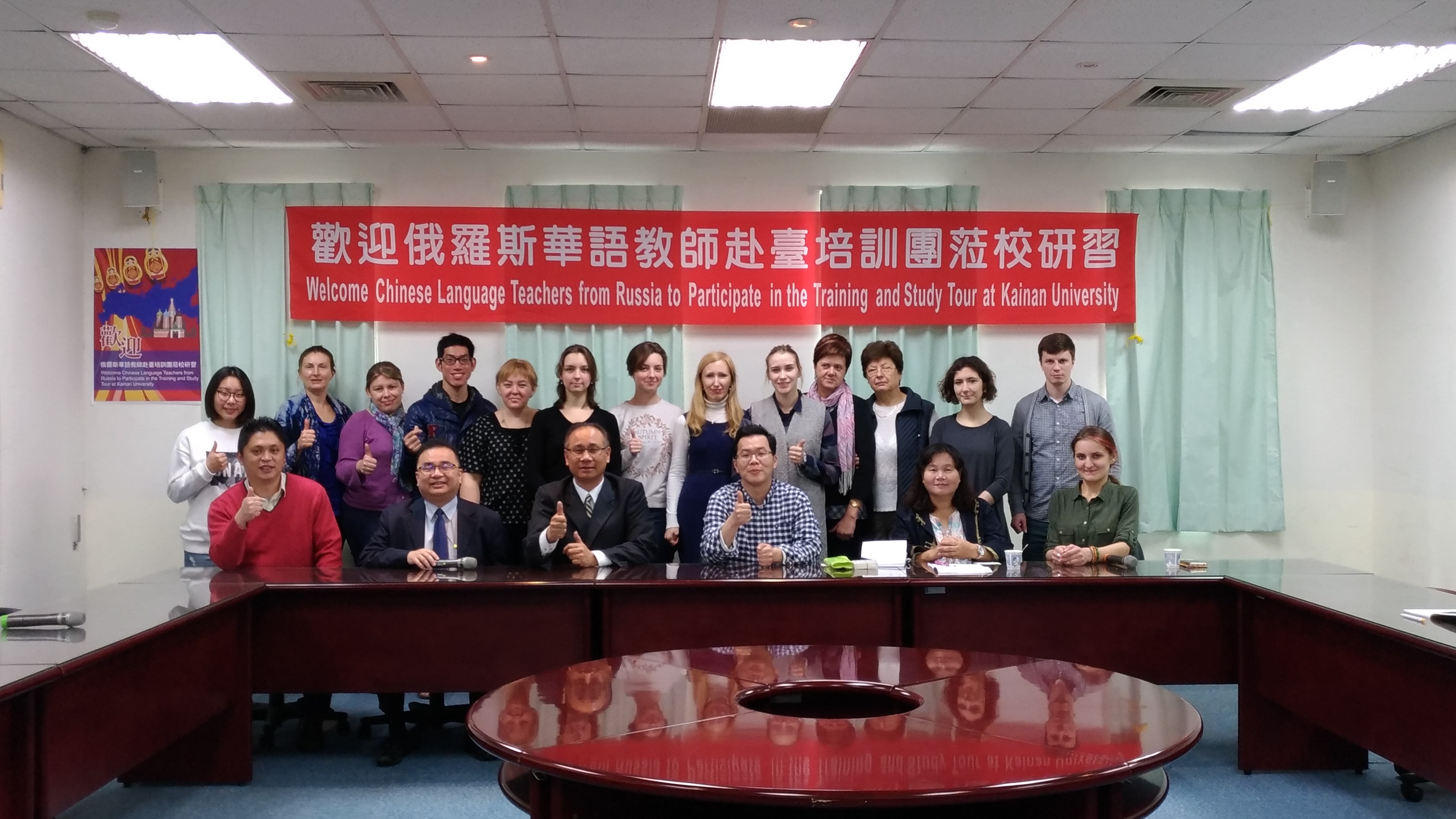The Mandarin Chinese Teaching Seminars 2017 for Russian Teachers were Held in Kainan University and Chung Yuan Christian University

The two host universities arranged a very enriching curriculum for the seminars, including Mandarin Chinese teaching theory and practice: covering Chinese language teaching methods and materials, Chinese linguistics, Chinese phonetics, multimedia teaching, Chinese phraseology, Chinese philology, teaching platforms for writing practice, TOCFL, and more. Chinese culture was also significantly featured, with the participants enjoying a Chinese culinary arts class, Chinese paper-cutting arts teaching, an introduction to Chinese folk festivals, teaching Chinese handicrafts and dancing, Chinese calligraphy, and visits to the National Palace Museum, Chiang Kai-Shek Memorial Hall, Wanhua Longshan Temple, Shihlin Night Market, the North Coast & Guanyinshan National Scenic Area, Tamshui, Jinshan, Keelong, the Pinglin Tea Museum, Nangang Tea Manufacturing Museum, and so on.
There is a rising Oriental Fever in Russia, and a possibility that Mandarin Chinese will be included in the Unified State Exam (EGE), and the implementation of the State 5-100 Project, so the Education Division of TMECCC is keenly encouraging Taiwanese universities to engage in more bilateral exchanges and cooperation and further develop closer ties with Russian universities and institutions.
The participants in Mandarin Chinese Teaching Seminars 2017 for Russian Teachers now have a better understanding and knowledge of many aspects of Taiwan and they also came in daily contact with the traditional Chinese characters still used in Taiwan, as well as by scholars and translators all around the world, and learned that studying and teaching them can be a positive feature of their current Chinese teaching and career planning. A number of the seminar participants took advantage of the opportunity presented by being in Taiwan to visit universities there to seek deeper cooperation with more universities, in some other fields as well as Mandarin Chinese.
Studying in Taiwan is a very good option - in comparison to studying in most Western countries, the total expenses are much more affordable and the Russian teachers who took part in the seminars are sure to encourage more of their Russian students to consider studying in Taiwan.
Seated from L-R: Dr. Jack Chao, Director of the Overseas Student Services Section, Kainan University; Dr. Lawrence Liaw, CEO of the International Honors Program, Kainan University; Dr. Chen Wen-Chia, Vice Dean of the Office of International and Cross-Strait Affairs, Kainan University; Mr. William Lu, Secretary of the Education Division of the Representative Office in Moscow for the Taipei-Moscow Economic and Cultural Coordination Commission (TMECCC); Dr. Chen Yen-Chiu, from the Chinese Department at Kainan University; and Ms. Tatiana Belousova, Senior Chinese language teacher of the Diplomatic Academy of the Russian Federation with Chinese language teachers from Russia in the auditorium of Kainan University.